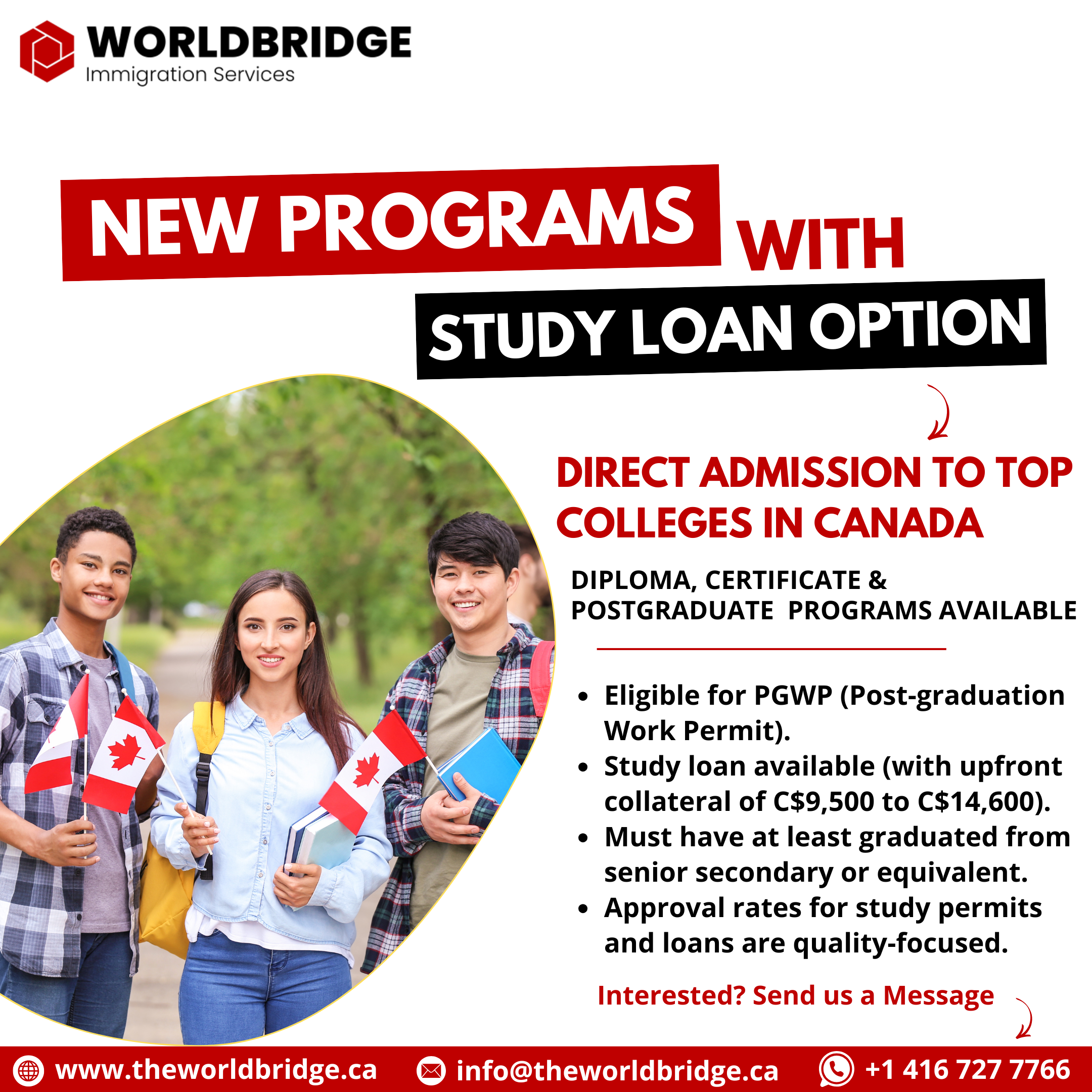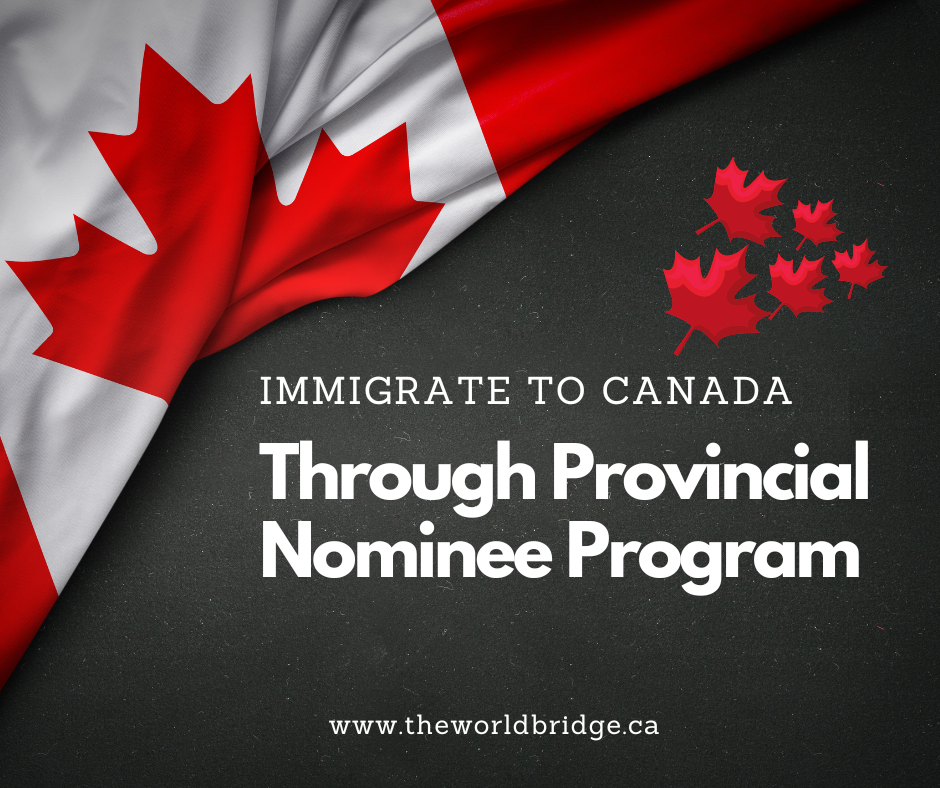Are you a foreign worker hoping to work in Canada or a Canadian employer looking to hire international talent? If so, understanding the Labour Market Impact Assessment (LMIA) process is essential. This guide provides an overview of the LMIA process, helping you navigate the steps and requirements with greater ease. What is an LMIA? An LMIA is a document issued by Employment and Social Development Canada (ESDC) that permits Canadian employers to hire foreign workers. A positive or neutral LMIA indicates that there is no Canadian citizen or permanent resident available to fill the role and that hiring a foreign worker will not negatively impact the Canadian labor market. In some cases, employers may not need an LMIA. Programs such as the Global Talent Stream (GTS) and Intra-Company Transfers (ICT) offer LMIA exemptions, making it easier for employers to bring in foreign talent. However, for most roles, an LMIA is a key requirement. LMIA Eligibility for Employers To be eligible to apply for an LMIA, employers must first meet specific criteria, including: 1. Advertising Requirements: Employers must advertise the position for at least 28 days (or one month) before applying. The minimum advertising standards vary depending on whether the position is classified as high-wage or low-wage and may differ by province. 2. Compliance with Wage Standards: Employers must ensure the wage being offered meets the prevailing wage standards in Canada for that specific role. Steps for Employers to Apply for an LMIA The LMIA process involves six key steps: 1. Verify Eligibility: Confirm that your company is eligible to apply for an LMIA. 2. Fulfill Advertising and Salary Requirements: Ensure compliance with the minimum advertising period and offer competitive wages. 3. Submit the LMIA Application: Complete and submit the LMIA application form online, including all necessary documentation. 4. ESDC Review: Wait for ESDC to review your application and verify the information provided, including the job offer. 5. Attend an Interview: Be prepared for an interview with an ESDC officer to discuss the application in detail. 6. Receive Approval: If successful, receive a positive or neutral LMIA decision from ESDC, allowing you to proceed with hiring the foreign worker. Requirements for Foreign Workers Once an employer has obtained an LMIA, the foreign worker will need the following to apply for a Canadian work permit: Key Factors Assessed in an LMIA Application When reviewing LMIA applications, ESDC evaluates the following: 1. Genuine Job Offer: The authenticity of the job offer and its alignment with labor market needs. 2. Impact on the Economy: Whether the role will positively contribute to the Canadian economy. 3. Addressing Labor Shortages: Evidence that the position fills a genuine gap in the labor market. Creating a Valid Job Offer A valid job offer should include the following details: Record-Keeping Requirements for Employers Employers are required to retain records of their recruitment efforts for at least six years. These records may include job advertisements and recruitment activities, which ESDC can request during compliance audits to ensure regulations are followed. LMIA-Exempt Categories Under certain circumstances, some occupations are exempt from the LMIA requirement. These include: Why is an LMIA Required? The primary purpose of an LMIA is to ensure that hiring foreign workers does not negatively affect Canadian citizens or permanent residents. Employers must demonstrate that their hiring efforts will not create direct competition with local talent. Final Thoughts Navigating the LMIA process can be complex for both employers and foreign workers. Ensuring compliance with advertising, wage, and documentation requirements is critical for success. If you’re unsure about any part of the process or want professional assistance, consulting an experienced immigration lawyer can provide clarity and guidance. For additional support, contact Worldbridge +1-416-727-7766 or email info@theworldbridge.ca. our team of experts is ready to assist you with all aspects of the LMIA process and beyond. Hiring foreign talent or obtaining a Canadian work permit is achievable with the right approach and resources. Start your journey today by understanding and preparing for the LMIA process!
Canada Immigration: 4,000 Invitations Issued in New Express Entry Draw
On January 23, 2025, Immigration, Refugees, and Citizenship Canada (IRCC) conducted the second Express Entry draw of the year under the Canadian Experience Class (CEC) program, inviting 4,000 candidates to apply for permanent residency. This draw, which featured a Comprehensive Ranking System (CRS) cutoff score of 527, marked a significant moment for skilled workers aiming to build their future in Canada. Notably, the CRS cutoff score dropped by 15 points compared to the previous CEC-specific draw held on January 8, 2025, indicating a slight reduction in competitiveness. Details of the Draw The following are the key highlights of the January 23, 2025, draw: The tiebreaking rule ensures fairness by giving preference to candidates who entered the pool earlier, reinforcing the importance of submitting profiles promptly. CRS Score Distribution As of January 23, 2025, the CRS score distribution in the Express Entry pool highlighted the competitive nature of the process, particularly in the higher score ranges. For candidates aiming to secure an invitation, understanding this landscape is crucial, along with taking proactive steps to improve their profiles. Understanding the Canadian Experience Class (CEC) The Canadian Experience Class is a critical immigration pathway under IRCC’s Express Entry system. It is designed to facilitate permanent residency for skilled workers who already possess Canadian work experience. The program provides an advantage to individuals who have integrated into Canadian society through their work and language skills. Eligibility Criteria for CEC: 1. Work Experience: At least one year of skilled work experience in Canada within the last three years before applying. 2. Language Proficiency: Candidates must demonstrate proficiency in English or French through approved language tests like IELTS, CELPIP, or TEF. 3. Education: While education is not mandatory, validated educational credentials can significantly enhance CRS scores. Factors Influencing CRS Scores Several factors contribute to a candidate’s CRS score, including: Comparison with Previous Draws A comparison of recent CEC draws reveals notable trends: 1. Higher Cutoff Scores: CRS scores have consistently exceeded 500, reflecting the competitiveness of the program. 2. Larger Draw Sizes: Draw sizes have increased over time, with many in 2024 exceeding 3,000 invitations. What This Draw Means for Candidates The January 23, 2025, draw underscores IRCC’s dedication to welcoming skilled talent through the Express Entry system. The issuance of 4,000 invitations and the decrease in the CRS cutoff score to 527 reflect a promising trend for candidates. However, the competition remains fierce, highlighting the importance of refining profiles and taking strategic steps to boost CRS scores. Key Strategies to Improve CRS Scores: Looking Ahead For candidates aspiring to secure permanent residency in Canada, staying informed about Express Entry trends and continually improving their profiles is essential. Consulting a licensed immigration professional can provide personalized guidance, ensuring that candidates make the most of available opportunities. The January 23, 2025, draw marks another step in IRCC’s mission to attract skilled workers and provide them with pathways to establish their futures in Canada. Candidates are encouraged to focus on boosting their CRS scores and leveraging every available resource to achieve their immigration goals. If you’re planning to apply or are already in the pool, preparation and strategic planning will be your keys to success.
Exciting Updates: New Programs, Loan Options, and Study Opportunities!
We’re thrilled to share some exciting news that opens new doors for your Canadian study and career dreams! New Programs Available A new College is now live, offering fantastic diploma programs in some of Canada’s most in-demand industries. Here’s a quick look: These programs come with financial aid options (loan support). You will however need an upfront deposit ranging from $9,500 CAD to $14,500 CAD, depending on your program of interest, to access the loan. Message us for more detailed info. Good News for Students with Study Gaps International students with up to 5-year study gaps can now apply for Niagara College programs. However, approval rates for study permits and loans are quality-focused, so strong applications have the best chances of success. New Feature: Loan-Only Option If you have direct admission with any of the supported colleges, we can now help you apply solely for loan to fund your study. This way, your admission remains intact while we help you access financial aid. Don’t Miss These Opportunities! 🌟 Spread the word and earn rewards! Join our Commission-Based Marketing Program. 💡 Do-It-Yourself (DIY) Immigration Assistance Service: Prefer to manage your immigration process yourself? We can help you achieve a successful application. Click here to learn how. 🤝 Consultation Service: Not sure where to start? Book a one-on-one consultation with our experts for personalized guidance. Click here to book. Let us help you take the next step toward your Canadian dream. Seats are limited, so act fast! Warm regards, The Worldbridge Team 📧 info@theworldbridge.ca📱 WhatsApp Chat: +1 416 727 7766🌐 www.theworldbridge.ca P.S.: Opportunities like these don’t come around often. Don’t wait—act now to secure your future!
Direct Admission to Study in Canada with Financial Aid
Your Pathway to Canada… Last week, we shared an update with you about application fee waiver to select institutions in Canada. We also informed you about a loan option to fund your study in Canada, which however required a proof of living cost of about C$20,635 (to be presented during visa application). Some of you who grabbed the opportunity are now being processed for admission into your preferred institutions in Canada. You made huge commitments, and we say kudos to you. Today, we have another update and opportunity for you. Please read carefully to understand how you qualify. Imagine securing direct admission to study in Canada without needing to take any exams or language proficiency tests (limited to Countries with English as their official language, including Nigeria and Ghana) — no IELTS, no Duolingo, no TOEFL! Plus, imagine getting a loan to fund your education and kickstart your journey to success. Sounds exciting, right? At Worldbridge Immigration Services, we’re thrilled to introduce a study pathway that opens doors for students and prospects like you. With this pathway, you can: – Gain Direct Admission: Navigating the complexities of admission processes and the fierce competition among applicants can be daunting. This program offers you a smoother pathway, bypassing common hurdles and enhancing your chances of securing a spot in a Canadian institution. – Receive Expert Guidance: Work with experienced RCIC (Regulated Canadian Immigration Consultants) who will guide you every step of the way, ensuring a smooth and stress-free experience. – Access Financial Aid: Get a loan of up to C$60,000 to fund your education, with an upfront deposit ranging from C$9,500 to C$14,500 (to be paid by you to access the loan). Learn more about our financial aid options here or use this link https://theworldbridge.ca/financialaid. Why Choose This Pathway? 1. No Language Test Required: Skip the IELTS, TOEFL, or Duolingo requirements and focus on what truly matters (limited to Countries with English as their official language, including Nigeria and Ghana) — your education and career goals. 2. Higher Chances of Acceptance: While admission is not guaranteed, meeting the program requirements significantly boosts your chances of getting accepted. 3. Stay in Canada After Graduation: Once you complete your program, you’ll be eligible for a Post-Graduation Work Permit (PGWP), allowing you to gain valuable Canadian work experience and work towards Permanent Residency. Remember: Among other requirements, you will be required to make an upfront deposit ranging from C$9,500 to C$14,500 (depending on your choice of program) to access the loan to fund your tuition and proof of living cost. The upfront payment will be deducted from the loan amount you have to repay. If this opportunity excites you and you meet the basic requirements, email us at info@theworldbridge.ca or send us a message on WhatsApp at +1-416-727-7766, and embark on your journey to Canada! Thank you for considering Worldbridge Immigration Services as your trusted partner in this journey. We look forward to helping you achieve your educational and career aspirations! Warm regards, Worldbridge Immigration Services Team 📧 info@theworldbridge.ca 📞 +1 416 727 7766 (WhatsApp) 🌐 www.theworldbridge.ca
Upcoming Changes to Canada’s Post-Graduation Work Permit (PGWP) Program: What International Students Need to Know
Hello future graduates and international students. Today, we’re exploring some intriguing changes that could shape your post-graduation journey here in Canada. Whether you’re currently studying or planning to pursue your education abroad, this is essential reading. What’s on the Horizon? The Canadian Immigration Department is considering significant modifications to post-graduation work permits, and these changes are going to affect you directly. These modifications aim to create a more streamlined and beneficial pathway from education to employment for international students. Aligning Education with Labour Market Needs So, what exactly are these changes? Let’s break it down. Firstly, imagine graduating from a program that not only aligns with your passion but also with Canada’s labour market requirements. That’s the direction we’re moving towards. The plan suggests aligning academic programs with Canada’s National Occupational Classification (NOC). In simpler terms, this means your studies could directly correspond to occupations projected to experience shortages in the future. Enhanced Job Prospects It’s incredibly exciting to think that your degree could lead to a job where your skills are in high demand. Knowing that your education is directly tied to potential job opportunities makes the future here more promising. This strategic alignment not only boosts your chances of employment but also contributes to Canada’s economic growth by filling critical job gaps. Quality Over Quantity But wait, there’s more. These changes aren’t just about aligning studies with job prospects. They’re also aimed at ensuring that international students have meaningful labour market outcomes commensurate with their education and training. It’s about quality over quantity. This means producing graduates who are not only employable but also possess the skills and knowledge required for high-demand occupations. Impact on Post-Graduation Work Permits Now, you might be wondering, how does this affect you? Well, for starters, the days of pursuing any post-secondary program and automatically qualifying for an open work permit are changing. The new system will likely place a stronger emphasis on the relevance of your chosen program to Canada’s labour market needs. This shift ensures that your education investment translates into real career opportunities. Navigating the Changes But don’t worry, we’ve got you covered. To stay ahead of these changes, it’s crucial to choose your academic programs wisely. Look for programs that not only interest you but also align with Canada’s future job market. Stay informed about the evolving requirements and seek guidance from academic advisors and career counselors. In summary, these upcoming changes to Canada’s post-graduation work permit system are designed to better align international students’ education with the country’s labour market needs, enhancing job prospects and ensuring meaningful employment outcomes. While the adjustments might seem daunting, they also present an exciting opportunity to tailor your education to a fulfilling career in Canada. As you navigate these changes, remember to stay informed, stay prepared, and embrace the opportunities that lie ahead. Keep dreaming big and working towards your goals. The future is bright for international students in Canada. Source IRCC Let Worldbridge Immigration Services be your guide to a successful future in CanadaContact us: Website: www.theworldbridge.caEmail: info@theworldbridge.caPhone/WhatsApp: +1-416-727-7766Social Media: @worldbridgeHQ
How to Improve Your Comprehensive Ranking System (CRS) Score for Canadian Permanent Residence
If you’re considering moving to Canada and applying for Permanent Residence (PR), understanding the Comprehensive Ranking System (CRS) is crucial. The CRS is a point-based system used by the Canadian government to evaluate Express Entry profiles and Provincial Nominee Program (PNP) applications. Your CRS score determines your eligibility and ranking within the pool of applicants. Here are practical steps to enhance your CRS score and increase your chances of qualifying for PR: Remember that the CRS cut-off varies in each Express Entry draw. Regularly check the cut-off scores and adapt your strategy accordingly. For more information and personalized guidance, visit our website at www.theworldbridge.ca. Source IRCC Let Worldbridge Immigration Services be your guide to a successful future in CanadaContact us: Website: www.theworldbridge.caEmail: info@theworldbridge.caPhone/WhatsApp: +1-416-727-7766Social Media: @worldbridgeHQ
Civic and Legal Rights and Responsibilities of New Immigrants in Canada
Moving to a new country is an exciting adventure, but it also comes with a set of responsibilities and legal obligations. As a newcomer to Canada, understanding your rights and responsibilities is crucial for a smooth transition and successful integration into Canadian society. In this article, we’ll explore the key aspects of civic and legal life in Canada. Understanding Canadian Law Public Laws Public laws in Canada cover a wide range of topics, including criminal law, constitutional law, and administrative regulations. Here are some essential points to consider: Private Laws Private laws deal with individual rights and responsibilities. Key areas include: Resolving Disputes Court System Canada has a well-established court system that ensures fair resolution of disputes. Here’s an overview: Alternative Dispute Resolution (ADR) Many Canadians choose ADR methods to resolve conflicts outside the court system: Legal Representation Hiring a Lawyer When seeking legal advice or representation, consider hiring a lawyer. You can find one through provincial and territorial law societies or by contacting Justice Net. Legal Aid If your income is limited, you may qualify for free legal assistance through local legal aid societies. Ensure you explore this option if needed. Rights and Freedoms Canadian Charter of Rights and Freedoms The Charter guarantees fundamental rights and freedoms, including freedom of speech, religion, and assembly. It also protects against discrimination. Familiarize yourself with these rights to understand your legal protections and obligations. Responsibilities as a Resident Obeying Laws As a resident, you must obey all Canadian laws. Ignorance of the law is not an excuse. Respecting Others Allow fellow Canadians to enjoy their rights and freedoms. Treat others with kindness and respect. Preserving Heritage Canada’s strength lies in its multicultural heritage. Embrace diversity and contribute to a harmonious society. Additional Resources Settlement Information On your first day and week in Canada, follow settlement guides and resources. Learn about healthcare, education, and community services. For more detailed information on immigration and settling in Canada, book a consultation session with us at www.theworldbridge.ca Understanding your civic and legal rights and responsibilities is essential for a successful life in Canada. By respecting the law, embracing diversity, and contributing positively to your community, you’ll become an integral part of Canada’s multicultural fabric. Welcome to your new home! Let Worldbridge Immigration Services be your guide to a successful future in Canada. Contact us: Website: www.theworldbridge.caEmail: info@theworldbridge.caPhone/WhatsApp: +1-416-727-7766Social Media: @theworldbridgeHQ
How to Start a Business in Canada as an Immigrant
Establishing a business in Canada offers a promising opportunity for immigrants with innovative ideas. This guide outlines the key steps to navigate the startup visa process and start your business in Canada. Canada offers a unique visa pathway known as the Startup Visa, tailored specifically for immigrant entrepreneurs with the skills and potential to create businesses that benefit the Canadian economy. This program seeks individuals who are innovative, can generate jobs for Canadians, and have the capability to compete globally. Eligibility Requirements Qualifying Business To be eligible for the Startup Visa, your business must meet certain criteria: A crucial step in the process is obtaining a letter of support from a designated organization. These organizations are set up in Canada to nominate potential entrepreneurs. Your business idea will be assessed and voted on by these organizations. A successful nomination is essential for your application. Language Proficiency Applicants must meet language requirements in either English or French. You must pass a language test to demonstrate your proficiency, which is essential for conducting business in Canada. Proof of Funds You must demonstrate that you have sufficient funds to support yourself and any accompanying family members. The required amounts are similar to those for the Express Entry program: Application Process Step 1: Gather Necessary Documents Collect all required documents, including: Step 2: Apply Online Submit your application online through the permanent resident application portal. Ensure all information is accurate and complete. Step 3: Biometrics and Fees You will need to complete your biometrics and pay the application fee, which is approximately $1,200 CAD. Step 4: Wait for Processing The processing time for the Startup Visa is about 37 months. During this period, your application will be reviewed, and you may be asked to provide additional information or attend an interview. Step 5: Medical Examination A medical examination is required to ensure you meet the health standards for immigration to Canada. Step 6: Final Decision and Confirmation Once your application is approved, you will receive confirmation of permanent residence (PR). If you are already in Canada, you can finalize your status by crossing the nearest border (e.g., US-Canada border) and returning to have your PR status confirmed. Entry Requirements Upon arrival in Canada, you will be greeted by an officer from the Canada Border Services Agency (CBSA). You must present: Ensure you have sufficient funds to support yourself. If you are carrying more than $10,000 CAD, you must declare it to the border officers. This can include cash, stocks, bonds, treasury bills, bankers’ drafts, cheques, travelers’ cheques, or money orders. Conclusion The Startup Visa program offers a valuable opportunity for immigrant entrepreneurs to establish and grow their businesses in Canada. By meeting the eligibility criteria, obtaining support from a designated organization, and fulfilling the application requirements, you can embark on an exciting entrepreneurial journey in one of the world’s most vibrant and diverse economies. If you qualify, take advantage of this pathway to contribute to the Canadian economy and build a successful future.Source IRCC Let Worldbridge Immigration Services be your guide to a successful future in CanadaContact us: Website: www.theworldbridge.caEmail: info@theworldbridge.caPhone/WhatsApp: +1-416-727-7766Social Media: @theworldbridgeHQ
Canadian Government’s Rural and Northern Immigration Pilot: A Pathway to Prosperity
The Rural and Northern Immigration Pilot (RNIP) is a strategic initiative launched by the Canadian government in 2019. This program aims to connect skilled immigrants with smaller Canadian communities experiencing critical labor shortages. By doing so, it provides a pathway to permanent residence for eligible foreign nationals who possess the skills and expertise needed to foster growth and development in these communities. Program Status and Potential Extension Initially scheduled to conclude on August 31, 2024, discussions are underway about extending the RNIP due to its significant role in promoting regional development and population growth. The program offers a mutually beneficial scenario: communities address their labor needs while skilled individuals gain a route to permanent residency in welcoming environments. Community Eligibility Criteria To participate in the RNIP, communities must meet specific criteria outlined by the Canadian government: Individual Eligibility Criteria To qualify for the RNIP, individuals must meet the following requirements: It’s important to stay updated on eligibility criteria changes. For instance, adjustments made on September 23, 2022, required individuals who applied for community recommendations between September 23, 2022, and November 15, 2022, to show one year of work experience—at least 1,560 hours—within the past three years. Application Process The RNIP application process involves two main steps: Selection Process During the selection process, IRCC considers several factors: Benefits and Opportunities The RNIP offers several key benefits for both participating communities and skilled immigrants: For skilled immigrants, the RNIP presents attractive opportunities: Recent Developments and Considerations As of March 4, 2024, recent developments regarding the RNIP include: The RNIP continues to offer skilled immigrants valuable opportunities to integrate into welcoming Canadian communities, address labor market needs, and contribute to sustainable community growth. These recent updates and the potential extension hold promise for both individuals and communities looking to benefit from the program’s opportunities. New Immigration Pilot Programs To further bolster the efforts of the RNIP, the federal government has unveiled two new immigration pilot programs aimed at addressing labor shortages in rural areas and among Francophone minority communities. Announced by Immigration Minister Marc Miller in Sudbury, these programs include the Rural Community Immigration Pilot and the Francophone Community Immigration Pilot. The Rural Community Immigration Pilot is an extension of the RNIP, set to launch this fall. It aims to continue the success of the RNIP by providing a streamlined pathway to permanent residency for skilled workers willing to settle in rural and northern communities. The Francophone Community Immigration Pilot, on the other hand, focuses on increasing the settlement of French-speaking newcomers in Francophone minority communities outside Quebec. These pilots will eventually transition into permanent programs, reinforcing Canada’s commitment to supporting economic migration to rural and remote areas. By participating in these programs, newcomers can benefit from living in welcoming communities that offer robust support systems, including housing assistance, language training, and integration services. These initiatives not only help address skilled labor shortages but also contribute to the economic growth and cultural diversity of these regions. Conclusion For those considering immigrating to Canada, these programs present an excellent opportunity to build a prosperous future in a supportive and vibrant community. With the RNIP and the new pilot programs, Canada continues to demonstrate its dedication to welcoming skilled immigrants and fostering sustainable community growth. Let Worldbridge Immigration Services be your guide to a successful future in Canada. Contact us: Website: www.theworldbridge.caEmail: info@theworldbridge.caPhone/WhatsApp: +1-416-727-7766Social Media: @worldbridgeHQ
Immigrating to Canada through the Provincial Nominee Program (PNP)
Canada’s Provincial Nominee Program (PNP) is an integral part of the nation’s immigration system, tailored to address the demand for skilled workers and entrepreneurs. This program empowers provinces and territories to nominate individuals who can contribute to the local economy and fulfill labor market needs, ultimately leading to permanent residency. Understanding PNP Canada The PNP is a collaborative initiative between Canadian provinces and the federal government. It features over 80 immigration streams, each with its own set of eligibility criteria and requirements. These streams are designed to attract a diverse group of immigrants, from skilled workers and graduates to business owners, farmers, and semi-skilled workers, each contributing uniquely to Canada’s multicultural society. The program aims to match the economic needs of each province with the diverse economic profiles of immigrants. Eligibility Criteria for PNP Canada To be eligible for the PNP, applicants must meet the specific criteria outlined by their chosen province or territory. This includes factors like work experience, education, language proficiency, and an intent to live in the province. For entrepreneurs, this often includes possessing a certain net worth and making a significant investment in the province’s economy. Provinces use a point system to evaluate potential immigrants, ensuring that only those who meet their economic and cultural needs are selected. Thorough research into the requirements of the desired province is crucial for potential applicants, as each province has its unique set of criteria. Application Process for PNP Canada Interested individuals can apply to a PNP either directly to a province or through the federal Express Entry system. Applying through Express Entry increases visibility to all provinces and territories and significantly boosts an applicant’s Comprehensive Ranking System (CRS) score by 600 points if nominated, greatly enhancing the chances of receiving an invitation to apply for permanent residency. Steps to Apply: Provincial Nomination: Secure a nomination from a province based on their specific criteria.Federal Application: Submit an application to Immigration, Refugees and Citizenship Canada (IRCC) for a permanent resident visa.Documentation: Provide all necessary documentation to both the provincial PNP and IRCC.Evaluation: Applications are evaluated based on the applicant’s ability to contribute to the province’s economy and culture. Processing Times for PNP Applications Processing times for PNP applications can vary. Those who apply through Express Entry can expect a processing time of approximately 5 to 6 months, whereas direct applications to a province may take anywhere from 12 to 24 months. Each province has its own processing times, and applicants should plan accordingly. The Significance of PNP Canada The PNP is not just a mechanism for economic growth; it’s a gateway for immigrants to establish permanent roots in Canada with potentially fewer hurdles than other immigration pathways. By comprehending the intricacies of the process, eligibility standards, and application procedures, hopeful immigrants can adeptly navigate the PNP and realize their aspirations of building a life in Canada. Benefits of PNP Fast Processing: Provincial nominations can expedite the immigration process.Less Competitive: The PNP is often less competitive than other immigration programs.Economic Benefits: Access to quality products and services, educational facilities, and healthcare services.Eligibility: Applicants with in-demand job offers or skills are prioritized. The journey to Canadian residency through the PNP is a structured yet rewarding process. Aspiring immigrants are encouraged to conduct comprehensive research and stay informed about the latest updates in immigration policies. The PNP offers a viable and efficient route to Canadian residency, providing numerous benefits and opportunities for those looking to start a new life in Canada. For more detailed information and updates on Canadian immigration, contact us: Website: www.theworldbridge.caEmail: info@theworldbridge.caPhone/WhatsApp: +1-416-727-7766Social media: @theworldbridgeHQ










